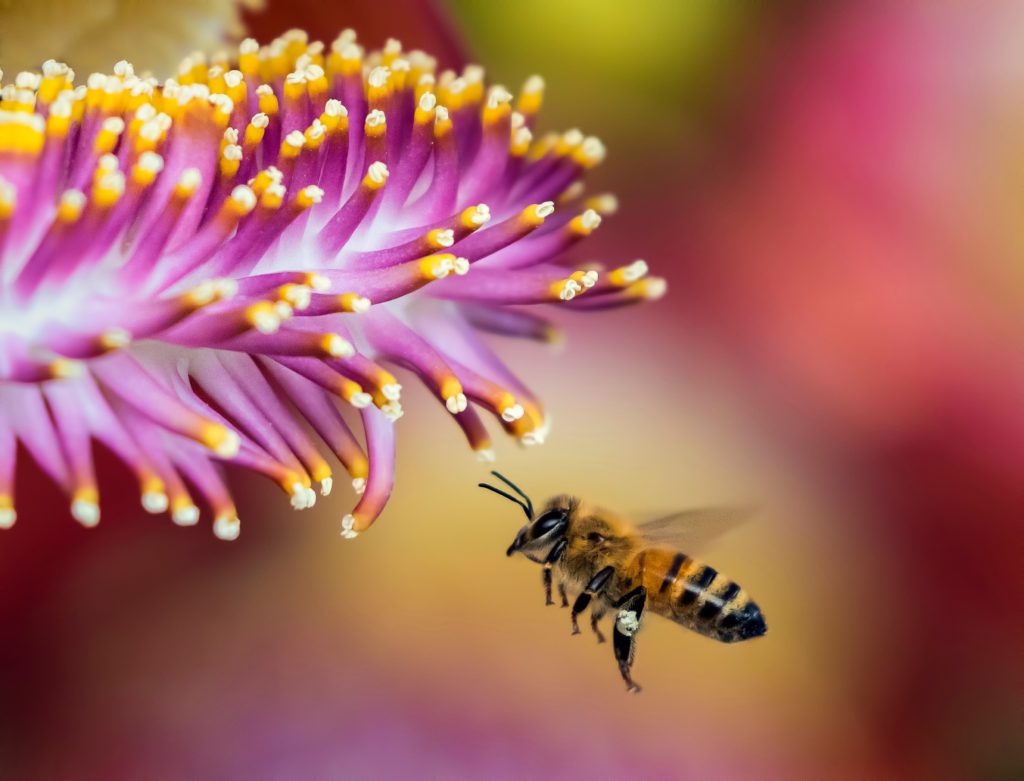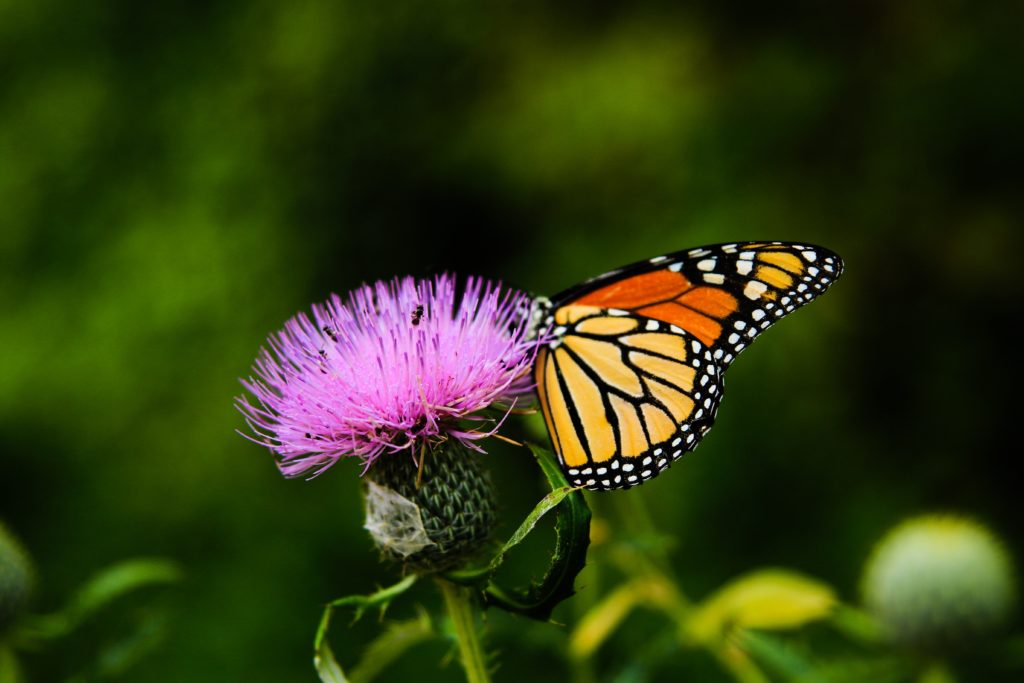Tiny beings can be very important. They don’t have a voice, so we need to help them out.
Time for us to bee proactive and to think of the tiny giants we need for everyone’s food and the health of the planet.
Bees are not the only pollinators. There are many species of pollinators. ALL food depends on pollinators.
Here are some things we can all try to do.
Food: Plant a pollinator garden filled with flowers, trees and shrubs that produce flowers. Feed the pollinators. Choose plants that have different colors and shapes. Flowers bloom at different times of year and we can learn how to have blooms all year round by choosing plants that bloom during the changing seasons. Can you name some plants that would be good choices in your area?
Water: Bees and pollinators need water so a birdbath or a water feature like a fountain, chemical free, is a nice feature for them.
Shop organic: By supporting organic farms and farmers pollinators will also be able to eat in those areas.
Avoid Pesticides on your plants and in your garden: Poison kills beneficial insects as well as pests. We can all have amazing gardens without using any toxic pesticides. Bees (and other insects/animals) become unintended victims.
Shelter: Leave some leaves around on the ground for shelter. Leave some dirt areas for burrowing animals/insects that live in the dirt.
Tell your friends: Many folks don’t know the importance of pollinators. Make sure your friends and family know and understand the benefits of bees and pollinators. Take it further and make sure your lawmakers know this is important.
Make friends: Befriend your local loving beekeepers. Not all beekeeping is loving. Most backyard keepers love bees or they would not keep them. How the queen is treated, what they feed them, are chemicals used–all of these factors matter in beekeeping.
Honey honey: Large scale beekeeping can often kill the queen or poison the bees with chemicals used. If you eat honey, find a local loving beekeeper (check your local farmer’s market) visit if you can, and try to understand their operation and practices so you know. Learning is everything.
Avoiding honey by supporting organic maple syrup collectors is the best option for a honey substitute. Maple syrup is amazing!

Questions?
Michele@MicheleTheTrainer.com

